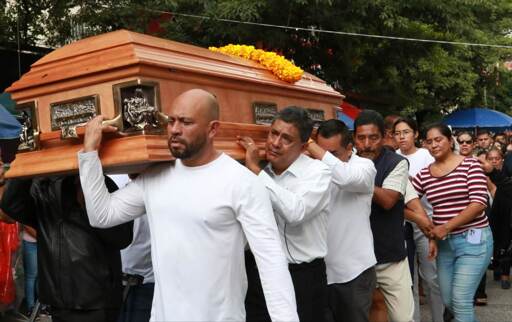- cross-posted to:
- worldnews@lemmy.ml
- cross-posted to:
- worldnews@lemmy.ml
tl;dr: cartels
Yet the specific targeting of elected officials points to something more sinister: Namely, the involvement of organized crime in local politics.
In recent years, Mexican cartels have become extraordinarily powerful, controlling up to a third of the country, according to the US military. Maintaining this level of territorial dominance requires control not just of major highways but also of the backroads and dirt tracks where drugs and cartel foot soldiers can more easily pass undetected.
…
Cartels have also diversified their criminal portfolio beyond the drug trade, turning to more localized forms of criminal enterprise, such as extortion, fuel theft, and illegal logging.
This requires cooperation from local officials to either look the other way as cartels go about their business or, in some cases, to actively support them, including in the form of lucrative government contracts that are awarded to criminal groups. Mayors who refuse to cooperate end up becoming targets.
“Political violence is aimed at political actors who prove to be a hindrance to dominant criminal organizations,” said Guerrero, the security analyst. “Mayors in many regions of the country have to ask permission from criminal capos about state spending on important infrastructure projects that the municipality wants to undertake.”
…
So while in some cases cartels may just be bribing public officials to turn a blind eye, security analysts say that increasingly in Mexico the state is becoming a tool for criminal groups to enrich themselves and expand their empire.
They need a Batman.



